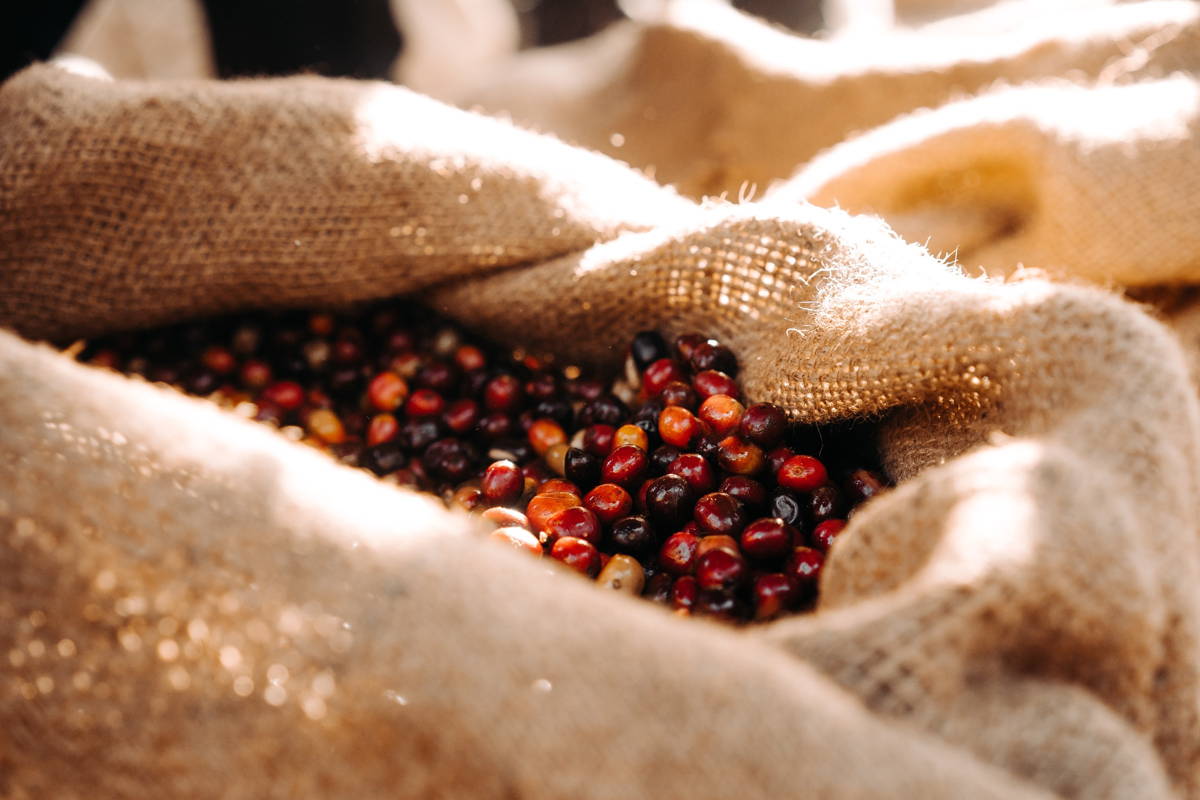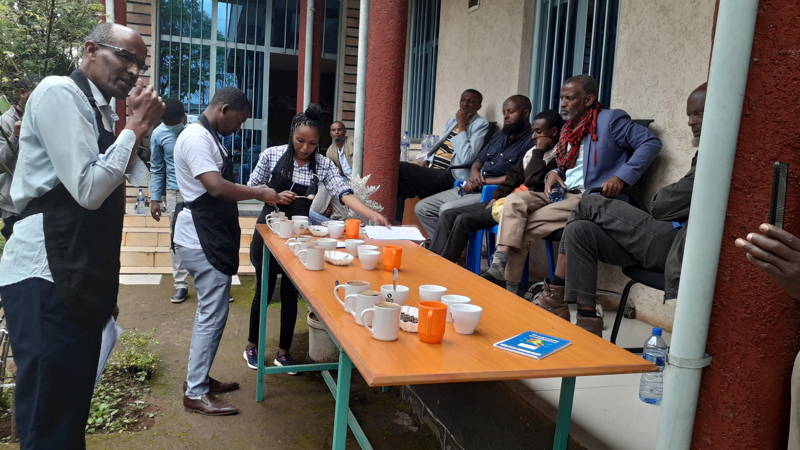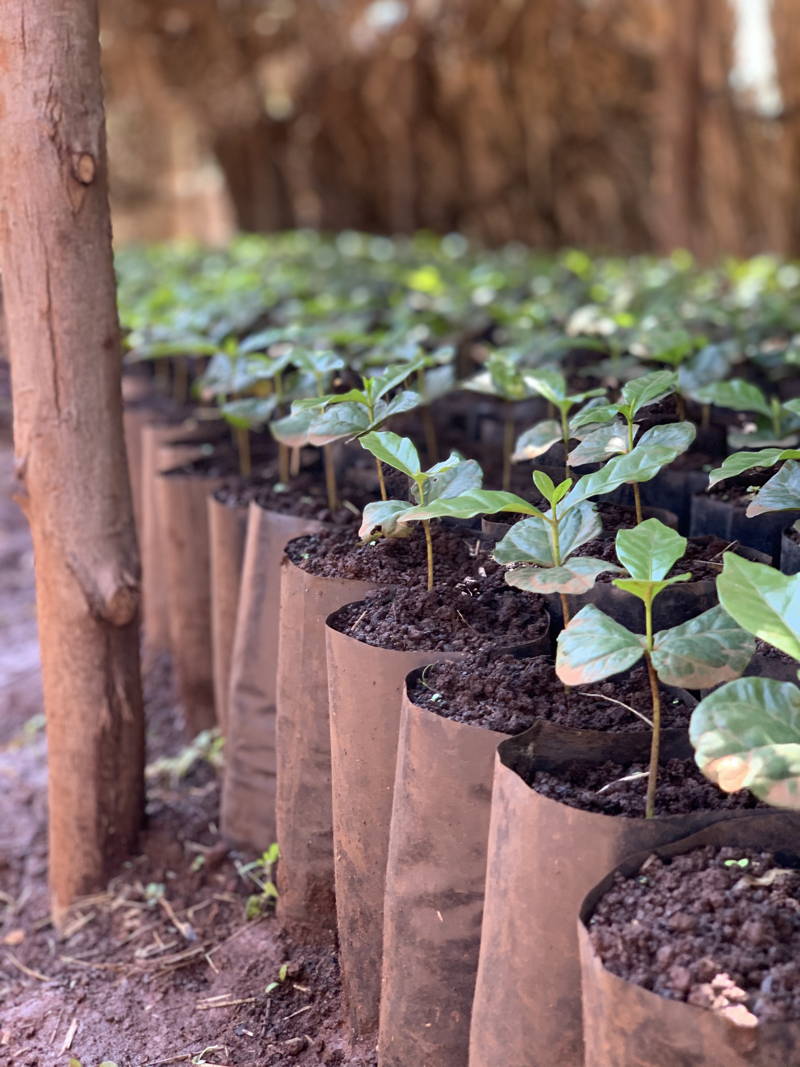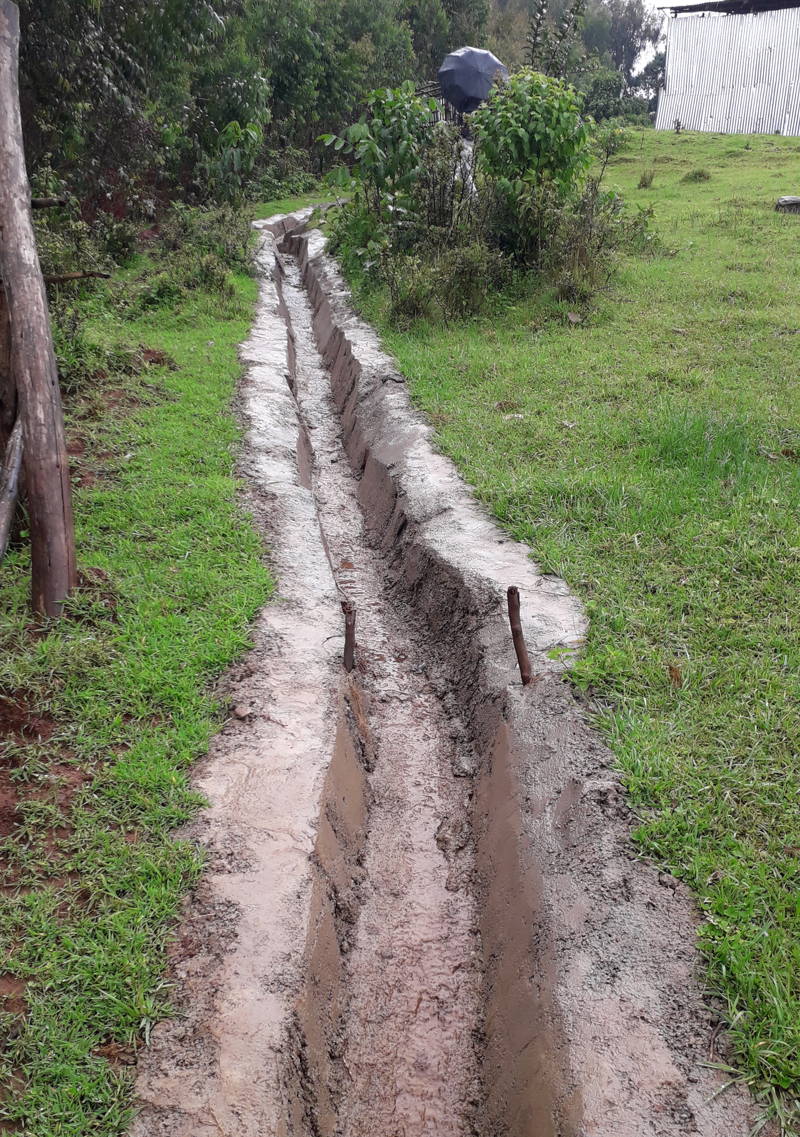
For the past three years, we have been working hand in hand with a total of 15 cooperatives during the coffee harvest. In addition to training to improve the quality of the coffees, we opened our first nurseries in western Ethiopia in 2020. This enabled us to plant more than 150,000 seedlings!
You only got one minute?
All highlights at a glance:
- Trainings with thousands of farmers from 8 coffee cooperatives
- Opening of 2 nurseries
- Raising of more than 150,000 seedlings
- Construction of „waste canals“ in cooperatives
Trainings with farmers
During the coffee harvest, local teams worked closely with farmers from eight cooperatives to help farmers improve crop productivity and coffee processing quality. Overview training on coffee quality control and processing was provided to farmer trainers and business advisers at the Geta Bore, Burka Bore, Kenisa, Bila Kummo, Doyo, Gorentu Andode, Ilketunjo, and Wokito Medalu cooperatives. Together with local coffee production experts (CoQua), we conducted numerous quality training sessions during and after harvest, providing farmers with knowledge on coffee cultivation, use of their land, and sustainable coffee processing and water use practices. Several thousand farmers participated in the trainings.

Founding nurseries
In total, we were able to reforest 10.03 hectares of communal land in seven communities.
In addition to training in processing, the sustainable cultivation of coffee also plays a major role in strengthening the region and local coffee cultivation. Together with the local communities, we have opened two nurseries, located in Doyo Toli in Mana district and in Homa Funtule in Gomma district. In both districts, warehouses have been built for the nurseries, which have been equipped with guard houses to protect the seedlings from break-ins.
In addition to coffee plants, many other tree species are grown there, which are used in coffee cultivation as shade trees and in the region for reforestation or agricultural purposes. Several 150,000 seedlings have been successfully raised and distributed to regional farmers. The cooperatives are well advised to ensure appropriate cultivation of the saplings so that the farmers can make the best use of the trees. Currently, the two nurseries are run by the cooperatives themselves, with minimal support from our project team.

Maßnahme rund um nachhaltige Kaffeeverarbeitung
To better inform farmers in the cooperatives about water and soil conservation measures, trainings were conducted around measures on Biological Soil Conservation, Physical Soil and Water Conservation, and Gully Rehabilitation and Development. In addition to the trainings, agricultural tools were also provided.
In Seka Chekorsa district in Andode Alaga Kebele, the teams identified an erosion site that needs rehabilitation. A total of 140 cubic meters of gabion dams could be constructed to protect the sites particularly affected by erosion.
In the cooperatives, Geta Bore, Burka Bore and Kenisa so-called „Waste Canals“ were built. Another cooperative has started the expansion. These waste canals are important because otherwise the „dirty“ water that accumulates during the pulping of the coffee cherries is discharged into the river and pollutes it. Through the waste canals, the water is now directed through a channel through vetiver plants, through into a collection basin. Through the plants, it is already somewhat cleaned in a natural way. Another part then evaporates in the collection basin and only the pre-cleaned remains get into the water.
